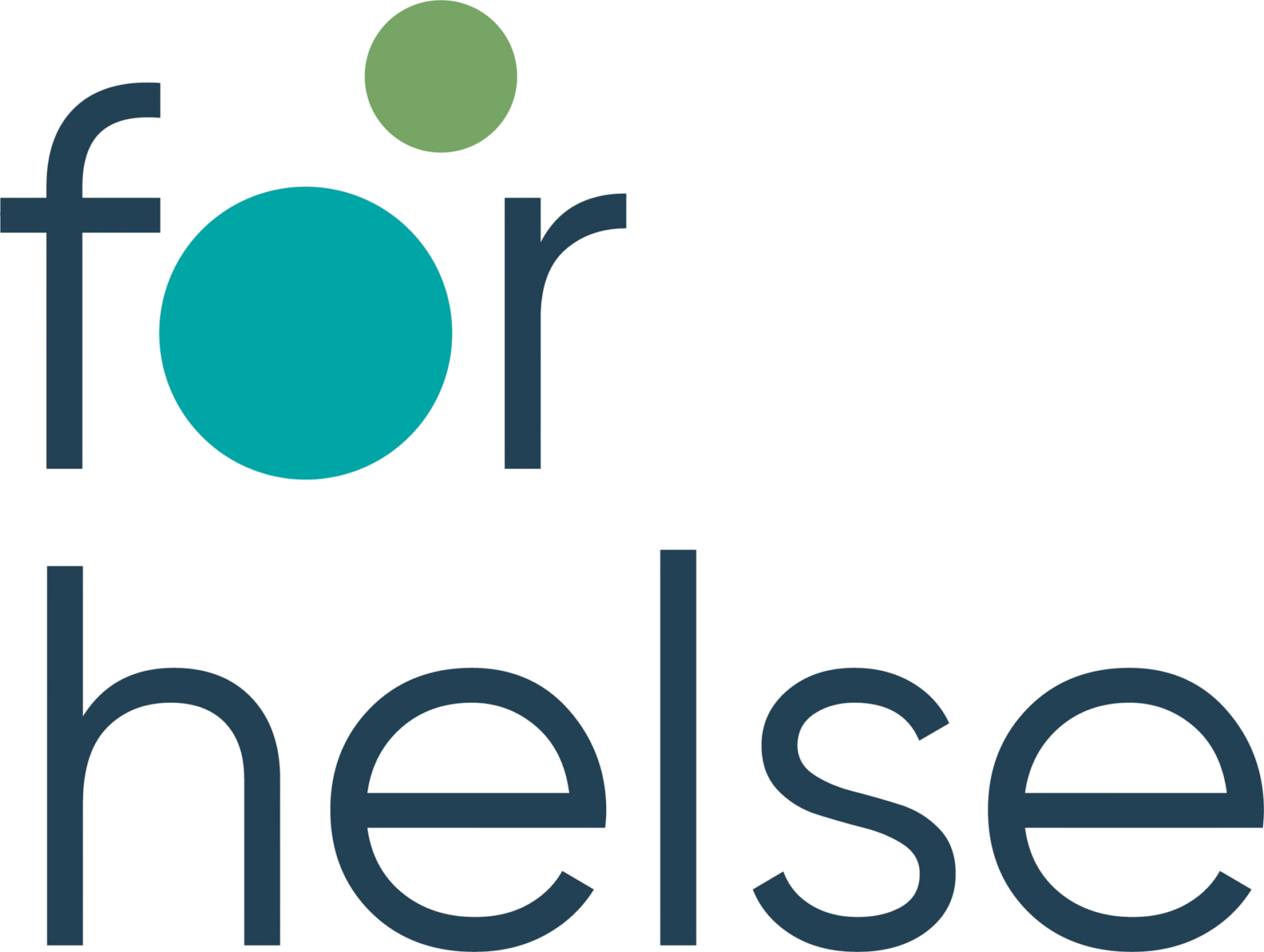Forhelse collaborates with the nursing program at VID

Three nursing students from VID Specialized University; Karoline Bjørge, Miriam Pedersen and Mille Torvik Grorud, have had a six-week internship at Forhelse, in the subject “Innovation and health management”. During the internship, they have participated in Forhelse’s start-up work to develop a research-based health app for young people (16 to18 years old) with depression symptoms.
VID’s starting point for the collaboration was that user participation should be the main focus of the project, to involve young people’s opinions on how best to develop the app. The students therefore conducted interviews with nine students at Åsane Videregående skole (high school) to collect data for use in developing the user-driven app. They also had an interview with a researcher at Forhelse, and gained insight into the research-based work in the project.
Forhelse’s professional starting point is that the new self-help app should emphasize five basic needs in young people’s everyday lives: meaningful activities, healthy thinking, goals and plans, healthy routines and social relationships. The aim is for users to register that they have worked on all five of these needs over the course of a week, so that the therapist can assess how the activities affect their mental health.
Young people want simple, user-friendly apps
The students who were interviewed were positive about the health app, but emphasized that the tool had to be simple to use, easy to understand and preferably with the use of video. They wanted the app to be able to add each users own activities, and also give room for flexibility. The young people expressed that it is desirable to have access to therapist help as well, that contact with a therapist would be reassuring. They prefer chat instead of phone calls.
– The pupils had little knowledge of digital health tools. – The interviews revealed that some young people in this age group (16-18 years) listened as much to influencers as to the health service when health products were recommended,” the students said.
Lack of knowledge can discourage the use of digital health tools
The students from VID understand the need to adopt digital healthcare services in the healthcare system, but also see challenges. They believe that not only the elderly but also young people can be skeptical about using digital health tools.
-“This form of treatment is new and many people don’t know what it involves. The traditional view is that human contact is important. It will therefore be important to communicate that the apps are health care based on research and thorough development work”, the students said.
Like the pupils, the students also think that therapist conversations must be offered in addition to the digital services, but depending on the type of treatment, to a lesser extent when the tool is to be used as a low-threshold offer.

Pedersen and Mille Torvik Grorud.
Involved students are rigged for the therapist role
The nursing students say that it has been of great value to them to learn about the work that goes into developing the app. They have read research articles and had conversations with researchers, thereby gaining knowledge and understanding of the thorough work that is carried out before an app is approved. They received good information about the researchers’ interdisciplinary approach to the problem.
– “Therapists who have gained knowledge and understanding of how thoroughly the apps have been developed already during their studies, are in a much better position to use the tool in their work as therapists,” say Karoline, Miriam and Mille.
They also believe that user participation is important. Young people who are informed that other youths have participated in the development of a research-based app are likely to see this as a good argument that the app is useful and relevant to them.
The students found it exciting and educational to participate in an innovation project, and during their internship at Forhelse they were able to present a prototype of the app for young people with anxiety and depression. Forhelse thanks for a very good collaboration!
VID students’ task at Forhelse: User participation in the development of digital health services within transdiagonal treatment for young people with anxiety and depression disorders.
About Transdiagnostic theory and treatment: About Transdiagnostic theory and treatment: Transdiagnostic theory and treatment is aimed at understanding and changing the common and specific processes of various mental disorders. This may indicate that a transdiagnostic approach focusing on common underlying mechanisms may be successful in the treatment of comorbid mental disorders such as anxiety and depression. An understanding of transdiagnostic processes can lead to a treatment that is more specifically adapted to each client than aimed at the individual disorder the patient has. Thus, such approaches can give the therapist important indications of where the main focus of the therapy should lie.
